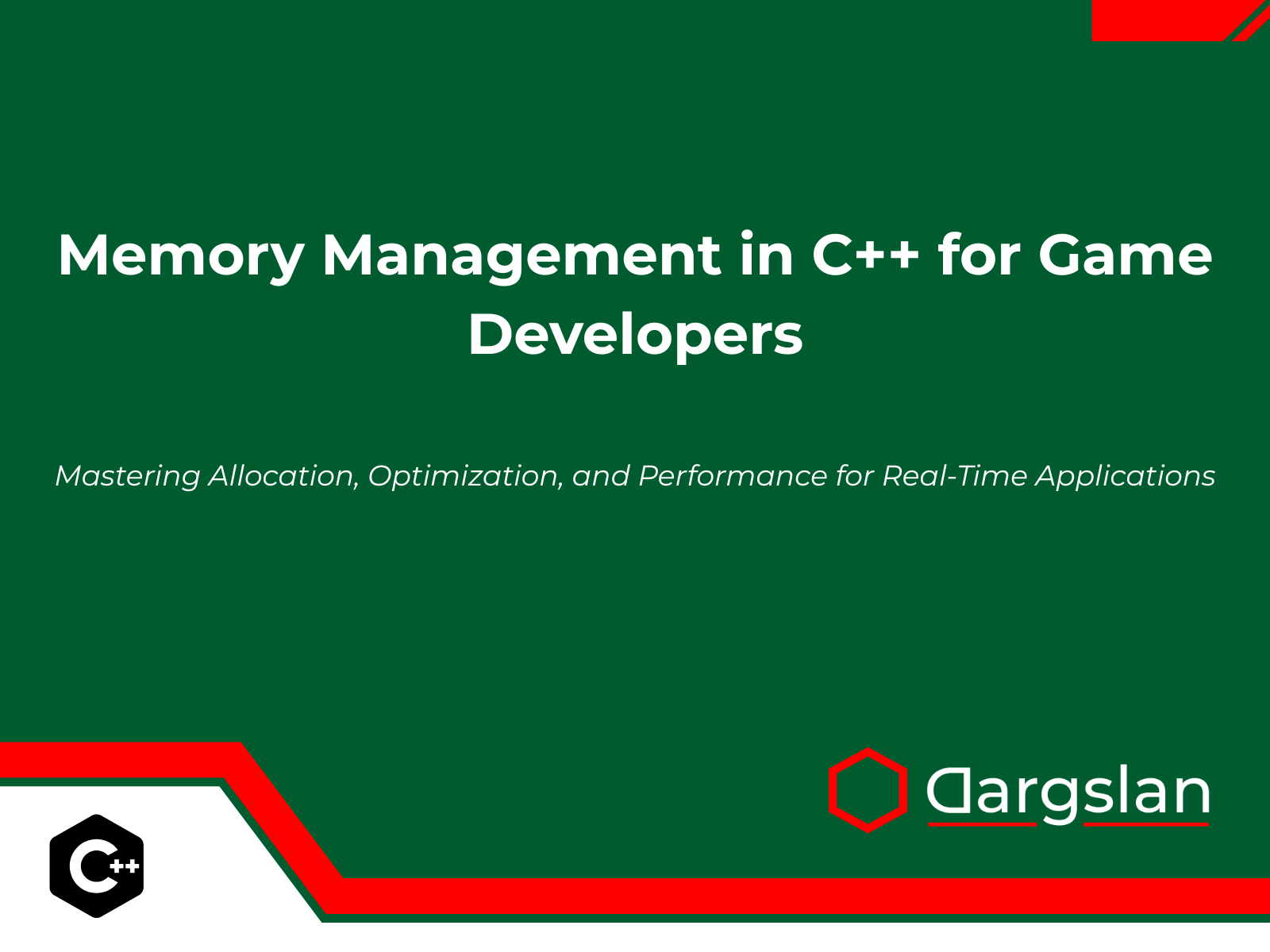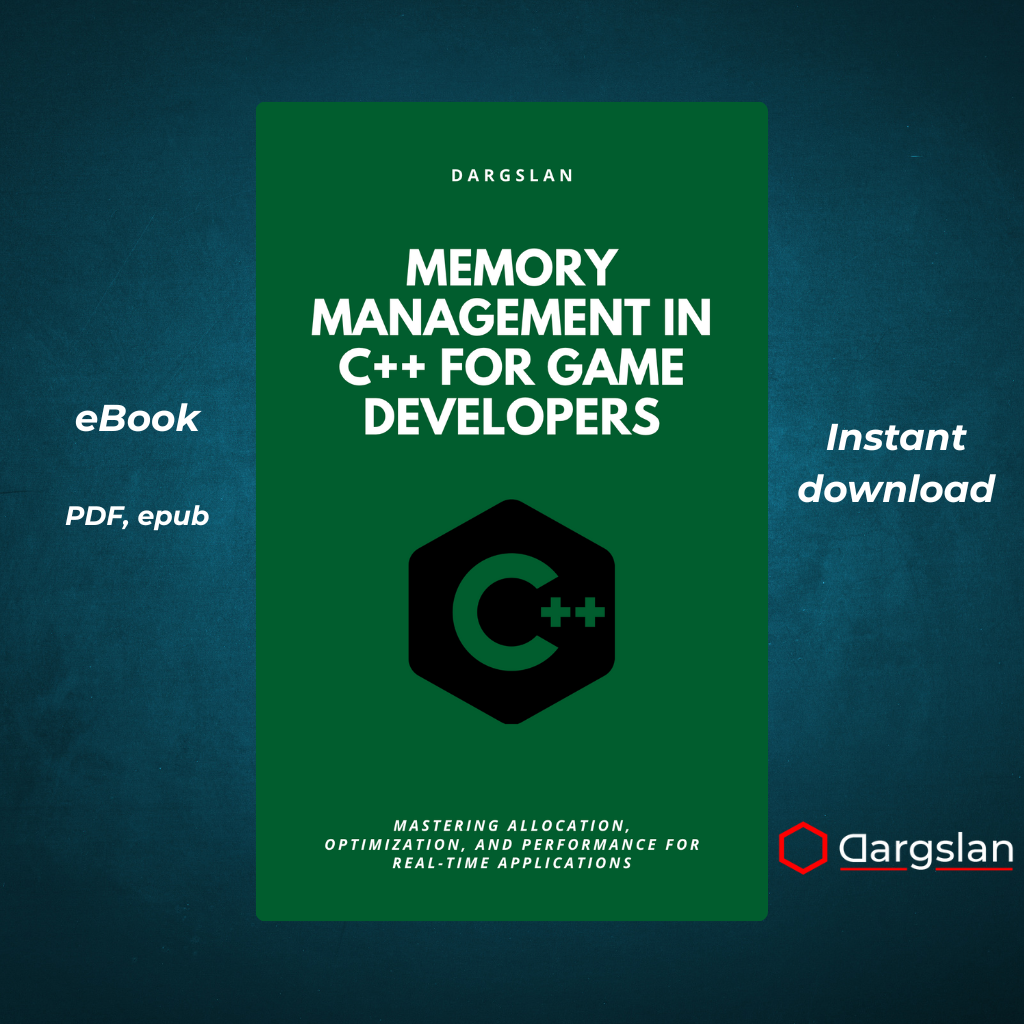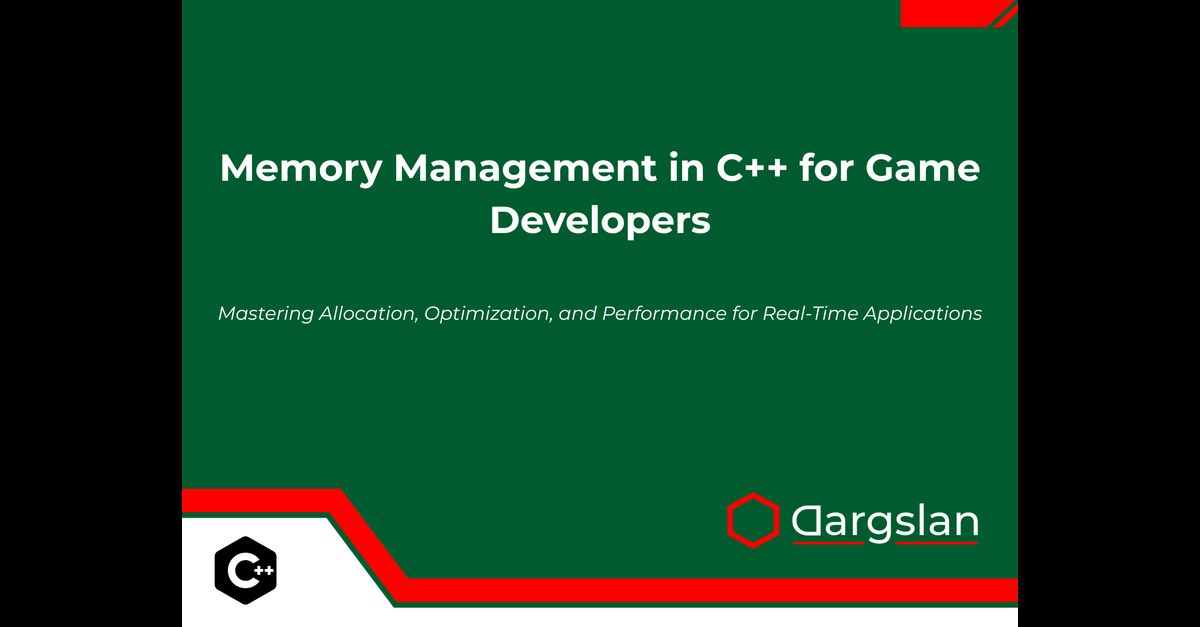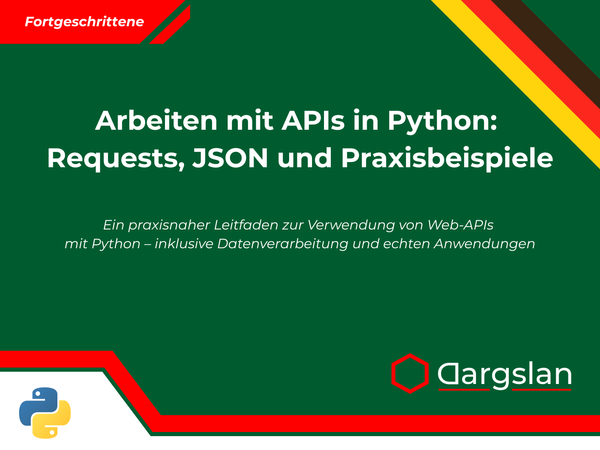Book Review: Memory Management in C++ for Game Developers


Memory Management in C++ for Game Developers
Mastering Allocation, Optimization, and Performance for Real-Time Applications
Book Review: Memory Management in C++ for Game Developers - A Comprehensive Guide to Performance Optimization
Executive Summary
"Memory Management in C++ for Game Developers" represents an essential resource for programmers looking to master one of the most critical aspects of game development. This comprehensive guide bridges the gap between theoretical knowledge and practical implementation, offering invaluable insights for both newcomers and seasoned professionals in the gaming industry.
Authored by the experienced developer Dargslan, this 12-chapter masterpiece takes readers through an expertly crafted journey from basic memory concepts to advanced optimization techniques. What sets this book apart is its unwavering focus on real-world applications, complete with code examples, case studies, and a culminating project that challenges readers to build a custom memory allocator.
For game developers serious about creating high-performance applications that run smoothly across various platforms, this book isn't just recommended reading—it's virtually mandatory. The techniques described here can mean the difference between a game that stutters and crashes versus one that delivers a seamless, immersive experience that keeps players engaged.
Why Memory Management Matters in Game Development
Memory management represents the hidden foundation upon which successful games are built. While players may marvel at stunning graphics or innovative gameplay mechanics, developers understand that efficient memory usage makes these experiences possible. In an industry where performance expectations continue to rise while supporting increasingly diverse hardware platforms, mastering memory management has never been more critical.
Poor memory handling leads to numerous issues that directly impact player experience:
- Frame rate stuttering and inconsistent performance
- Unexpected crashes and memory leaks
- Excessive loading times
- Limited scalability across different hardware configurations
- Increased development time spent debugging memory-related issues
This book addresses these challenges head-on, providing developers with the knowledge and tools needed to prevent such problems before they occur.
Chapter-by-Chapter Analysis
Chapter 1: Introduction to Memory in Game Development
The book opens by establishing the critical importance of memory management in the gaming context. Rather than diving immediately into technical details, the author takes time to explain why memory considerations differ substantially in games compared to other software applications.
Key concepts covered include:
- The unique memory constraints of real-time interactive applications
- How memory usage impacts frame rates and player experience
- Historical evolution of memory management in games
- Overview of modern hardware memory architectures relevant to game developers
- Introduction to the memory-performance relationship
This foundational chapter succeeds in setting the stage for deeper exploration while motivating readers by clearly connecting memory optimization to tangible improvements in game performance.
Chapter 2: The Basics of Memory in C++
Chapter 2 provides a solid refresher on fundamental C++ memory concepts while specifically highlighting aspects most relevant to game development. Even experienced C++ programmers will appreciate this carefully curated review that establishes common ground for the more advanced topics to follow.
Notable sections include:
- Stack vs. heap memory allocation and their performance implications
- Understanding the C++ memory model
- Object lifetimes and memory ownership
- Common memory pitfalls specific to C++
- Memory fragmentation concepts
The author excels at explaining complex concepts through clear examples that demonstrate both proper and improper memory usage patterns.
Chapter 3: Smart Pointers and RAII in Games
This chapter explores modern C++ memory management techniques through the lens of Resource Acquisition Is Initialization (RAII) and smart pointers. The author makes a compelling case for embracing these tools while also noting their limitations in performance-critical game scenarios.
Highlights include:
- Detailed breakdown of
std::unique_ptr,std::shared_ptr, andstd::weak_ptr - Performance characteristics and overhead considerations for smart pointers
- Custom deleters for game-specific resource management
- Implementing RAII for game resources beyond memory (textures, audio, etc.)
- Strategic use of smart pointers in different game subsystems
The practical examples show how to integrate these modern C++ features without sacrificing the performance demands of games.
Chapter 4: Manual Memory Management
Acknowledging that modern C++ features aren't always sufficient for game development's demanding requirements, Chapter 4 provides a thorough examination of manual memory management techniques. This chapter balances warnings about potential pitfalls with practical guidance for when direct memory control is necessary.
Key topics include:
- Safe and effective use of raw pointers
- Proper implementation of custom
newanddelete - Memory ownership patterns and explicit contracts
- Manual memory tracking systems
- Strategies for preventing leaks in complex systems
The author's pragmatic approach recognizes that game developers often need to mix different memory management styles depending on the specific requirements of different game components.
Chapter 5: Memory Profiling and Debugging Tools
No book on memory management would be complete without addressing how to identify and resolve problems. Chapter 5 provides an invaluable survey of tools and techniques for memory profiling and debugging across different platforms.
This comprehensive chapter covers:
- Memory profiling tools for Windows, macOS, and console platforms
- Integration of memory tracking into game engines
- Techniques for visualizing memory usage patterns
- Strategies for identifying and fixing memory leaks
- Memory corruption detection and resolution
- Benchmarking memory usage and impact on performance
Particularly useful are the step-by-step walkthroughs of real debugging scenarios that demonstrate how to apply these tools in practice.
Chapter 6: Cache Efficiency and Memory Access Patterns
Chapter 6 delves into one of the most critical yet often overlooked aspects of memory management: cache efficiency. The author expertly explains how modern CPU cache architecture impacts game performance and provides concrete strategies for optimization.
Standout sections include:
- CPU cache hierarchy and its impact on game performance
- Data-oriented design principles for game developers
- Optimizing data structures for cache-friendly access
- Techniques for measuring cache performance
- Practical examples of before/after optimization
By connecting theoretical cache concepts directly to measurable performance improvements in common game scenarios, this chapter provides tremendous practical value.
Chapter 7: Memory Alignment and Low-Level Optimization
Building on previous chapters, this section explores the fine-grained details of memory alignment and low-level optimization techniques. While advanced, the material is presented with sufficient context and examples to make it accessible.
Key topics include:
- Memory alignment requirements for different processors
- SIMD considerations and memory layout
- Custom alignment for game-specific data structures
- Platform-specific alignment requirements
- Performance impact of proper vs. improper alignment
- Memory padding optimization techniques
The code examples demonstrate how seemingly small alignment adjustments can lead to significant performance improvements in performance-critical systems.
Chapter 8: Real-Time Memory Considerations
Chapter 8 addresses the specific challenges of memory management within the constraints of real-time applications. This chapter is particularly valuable as it directly addresses the tension between optimal memory usage and maintaining consistent frame rates.
Important concepts covered include:
- Frame budgets for memory operations
- Techniques for avoiding allocation during gameplay
- Memory pooling strategies for real-time systems
- Handling dynamic resource loading during gameplay
- Memory defragmentation techniques
- Emergency memory management strategies
The practical advice in this chapter helps developers create memory systems that support consistently smooth gameplay experiences.
Chapter 9: Memory Management in Game Engines
This chapter examines how professional game engines implement memory management systems, providing valuable insights into industry best practices. Both commercial and open-source engines are analyzed, giving readers a broad perspective on different approaches.
Highlights include:
- Analysis of memory systems in major engines (Unreal, Unity, etc.)
- Common patterns and architectures for engine memory management
- Memory subsystem interaction with other engine components
- Resource loading and streaming systems
- Integration points for custom memory solutions
By examining real-world implementations, this chapter bridges theory and practice in a way that's immediately relevant to working game developers.
Chapter 10: Multithreading and Shared Memory
As games increasingly utilize multiple CPU cores, understanding the intersection of memory management and multithreading becomes essential. Chapter 10 tackles this complex topic with clarity and practical guidance.
Key areas explored include:
- Thread-safe memory allocation strategies
- Lock-free data structures for games
- Memory sharing between threads
- Per-thread allocators and their benefits
- Memory ordering and synchronization
- Avoiding common multithreaded memory pitfalls
The examples demonstrate both problematic patterns to avoid and effective solutions for common multithreaded game scenarios.
Chapter 11: Case Studies
One of the book's strongest features is its inclusion of detailed case studies from real games. Chapter 11 presents multiple examples spanning different genres, platforms, and team sizes, providing insights into how memory management challenges manifest in various contexts.
The case studies include:
- A memory optimization post-mortem from a AAA console title
- Mobile game memory constraints and solutions
- VR application memory management for smooth frame rates
- Indie game development with limited resources
- Memory optimization for cross-platform development
These practical examples help readers understand how the book's principles apply in diverse real-world situations.
Chapter 12: Final Project – Building a Custom Allocator
The book concludes with a comprehensive project that challenges readers to build and integrate a custom memory allocator into a game loop. This hands-on exercise synthesizes concepts from throughout the book into a practical implementation.
The project covers:
- Requirements analysis for custom allocators
- Step-by-step implementation guidance
- Integration with existing game systems
- Testing and benchmarking the allocator
- Optimization strategies and variations
- Future extension possibilities
This final chapter ensures readers not only understand the concepts but can apply them in practice—the ultimate goal of any technical resource.
Appendices: Additional Resources
The three appendices provide valuable supplementary material:
Appendix A – C++ Memory API Quick Reference offers a convenient reference for core C++ memory functions and classes, saving developers time when implementing the book's techniques.
Appendix B – Game Developer Memory Checklist provides a practical tool for evaluating memory management in existing projects, helping identify potential improvements.
Appendix C – Further Resources extends learning beyond the book with carefully curated resources, including papers, tools, and online communities focused on game performance optimization.
Technical Quality and Code Examples
Throughout the book, code examples strike an excellent balance between clarity and real-world applicability. Rather than simplified toy examples, the author presents code that resembles what might be found in actual game projects, complete with proper error handling and performance considerations.
Particularly valuable are the comparative examples showing both inefficient and optimized approaches to the same problem, with performance metrics that clearly demonstrate the impact of proper memory management.
The code follows modern C++ best practices while acknowledging the performance constraints unique to game development, offering a pragmatic rather than dogmatic approach to memory management.
Who Will Benefit from This Book
This book provides tremendous value to several audiences:
Professional game programmers will find advanced techniques and optimization strategies that can be immediately applied to enhance performance in current projects.
Aspiring game developers will gain a comprehensive understanding of memory management fundamentals that will distinguish them in a competitive job market.
Game engine developers will discover architectural patterns and systems-level optimizations essential for building high-performance foundations.
C++ programmers transitioning to games will learn how memory management requirements differ in real-time interactive applications compared to other software domains.
Technical directors and leads will obtain a reference for establishing best practices and evaluating memory-related technical decisions within their teams.
Prerequisites and Accessibility
While the book progressively introduces complex concepts, readers will benefit most if they already possess:
- Working knowledge of C++ programming fundamentals
- Basic understanding of game development concepts
- Some experience with performance profiling and optimization
The author does an admirable job of explaining advanced concepts from first principles, but complete programming novices may find some sections challenging. However, even those with intermediate C++ skills will be able to follow the material and apply many of the techniques presented.
Summary and Recommendation
"Memory Management in C++ for Game Developers" fills a crucial gap in game development literature by focusing exclusively on one of the most important yet often underdiscussed aspects of game programming. By combining theoretical knowledge with practical implementation techniques and real-world case studies, it provides an invaluable resource for anyone serious about game performance optimization.
What sets this book apart is its unwavering focus on practical application within the unique constraints of game development. Rather than generic C++ memory management, every concept, example, and technique is evaluated through the lens of real-time performance requirements and diverse hardware targets.
For professional game developers looking to enhance their technical skills, aspiring programmers aiming to break into the industry, or studio leads establishing best practices, this book represents an essential addition to the programming library. The knowledge contained within these pages will not only help create better-performing games but will also reduce development time spent wrestling with memory-related bugs and performance issues.
In an industry where player expectations continue to rise while hardware diversity expands, mastering memory management isn't optional—it's essential. This book provides the roadmap to that mastery in a comprehensive, accessible, and practical format that will benefit developers for years to come.
About the Author
Dargslan brings years of hands-on experience in game development to this comprehensive guide. With a background spanning both AAA and independent game development, the author combines theoretical knowledge with practical insights gained from shipping multiple titles across diverse platforms. This blend of academic understanding and real-world experience infuses the book with a pragmatic approach that prioritizes practical solutions over theoretical ideals.
This comprehensive review of "Memory Management in C++ for Game Developers" was prepared by GDTechReviews, specializing in technical resources for game development professionals. For more in-depth analysis of game development books, tools, and technologies, visit our website.

Memory Management in C++ for Game Developers






